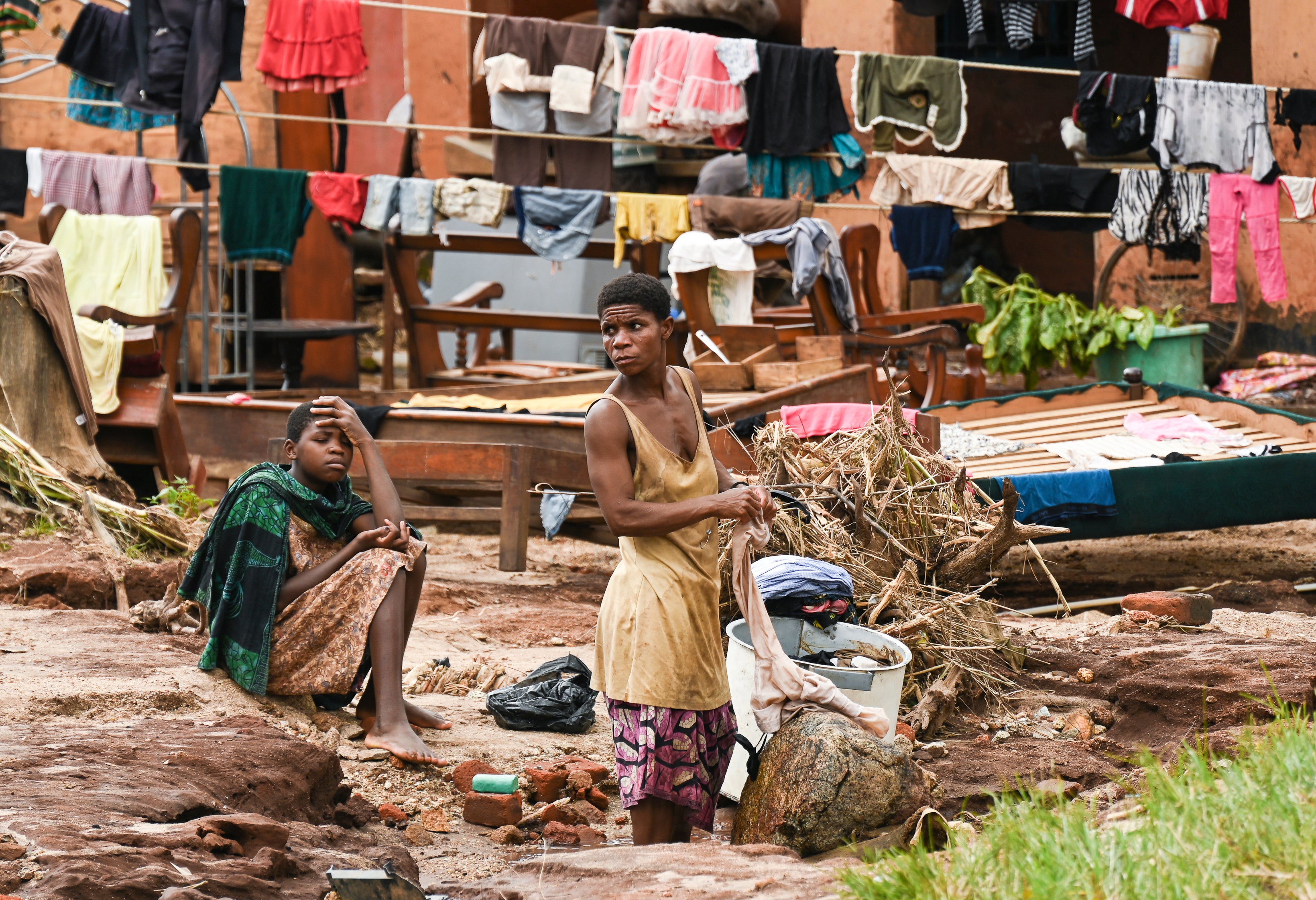Cyclone Freddy death toll passes 600 as urgent calls grow for international aid
Over 1.4 million affected by Cyclone Freddy that could be declared the longest ever in recorded history
Your support helps us to tell the story
From reproductive rights to climate change to Big Tech, The Independent is on the ground when the story is developing. Whether it's investigating the financials of Elon Musk's pro-Trump PAC or producing our latest documentary, 'The A Word', which shines a light on the American women fighting for reproductive rights, we know how important it is to parse out the facts from the messaging.
At such a critical moment in US history, we need reporters on the ground. Your donation allows us to keep sending journalists to speak to both sides of the story.
The Independent is trusted by Americans across the entire political spectrum. And unlike many other quality news outlets, we choose not to lock Americans out of our reporting and analysis with paywalls. We believe quality journalism should be available to everyone, paid for by those who can afford it.
Your support makes all the difference.Over 600 people have died after Cyclone Freddy wrought destruction in three countries over the past two months, according to the World Health Organisation (WHO), sparking growing calls from the African nations affected for more international attention and aid.
The cyclone has wrecked havoc in Madagascar, Malawi and Mozambique as aid agencies scramble to meet the increasing humanitarian needs of those impacted.
The destruction in the wake of the cyclone has claimed the lives of 605 people, affected over 1.4 million others in the three countries as of 20 March and “stretched the capacity of health facilities”, explained Matshidiso Moeti, the WHO’s regional director for Africa.
Aid and relief agencies have been forced to tackle rising cholera cases, malnutrition and large numbers of displaced families.
The long-lasting and brutal cyclone has also destroyed houses, roads, farmland and hospitals and “left an appalling humanitarian situation in its wake”, said the WHO, that has called for “increased and concerted humanitarian assistance” for recovery efforts.
Cyclone Freddy first hit Madagascar and Mozambique in February, then returned to the Indian Ocean before making a second landfall in March, which was far more devastating in Malawi, killing approximately 500 people and again in Mozambique, where around 900,000 people have been affected.
There are fears of a resurgent cholera outbreak in the region, with Malawi and Mozambique already among the countries most affected by a cholera outbreak that has spawned more than 68,000 cases across 12 countries in southern and eastern Africa this year alone.
The UN children’s agency Unicef said “millions” of children and their families in Malawi and Mozambique are vulnerable to a “potential increase” in cholera cases, with inadequate water, hygiene, health and sanitation systems further weakened by the devastation and flooding stemming from the cyclone.
In Mozambique, cholera cases have risen almost four fold to about 11,000 since February, according to Unicef. Other humanitarian needs are mounting in the region and aid agencies are pooling resources to alleviate the unfolding disaster.
In Malawi, about four million people – a fifth of the population – was already facing food insecurity, with close to 120,000 hectares of farmland destroyed by floods.
Among those in dire need of assistance are over 500,000 people displaced by the floods, according to the International Organization for Migration.

Malawi’s president Lazarus Chakwera has appealed to the international community to send urgent help.
He told Al Jazeera that Malawi cannot recover from such a storm without international assistance, with experts raising concerns that many areas are yet to receive any aid as entire villages in the country were swept away by floods.
“What is happening to us can happen to anyone, anywhere,” he told the outlet. “Let the world come in and help Malawi because we cannot afford to be going backwards instead of forward in terms of all the provisions that Malawians need.”
In Mozambique, aid agencies are struggling to reach desperate communities where roads have been damaged, with more than 160,000 people displaced and living in temporary shelters, according to the UN humanitarian agency.
Cyclone Freddy is expected to be declared the longest-ever cyclone in recorded history.
The devastation is the latest in a string of weather-related disasters like floods, storms and debilitating droughts that have devastated sub-Saharan Africa in the past decade, highlighting the deadly impact of the climate crisis in a region with weak economies and infrastructure ill-equipped to cope with such destruction.
Rich countries must rapidly reduce their greenhouse gas emissions and help vulnerable countries to adapt to these types of events, which will only get worse with further warming.
While experts are still looking into what has made this cyclone last longer and what role the climate crisis has played in it, the increased intensity of this storm is consistent with predictions made by the Intergovernmental Panel on Climate Change (IPCC).
Experts have been warning that the climate crisis is ramping up the intensity and frequency of extreme weather events like tropical cyclones.
“Climate change likely played a role in Cyclone Freddy, making the event more likely and increasing the amount of rain that fell,” said Dr Friederike Otto, co-founder of World Weather Attribution (WWA), adding that a study conducted by her organisation identified that climate crisis had made the rainfall more frequent and severe.
“Our study also noted that the impacts were made worse due to the high vulnerability of the affected countries, which is what turns an extreme weather event into a disaster.”
Additional reporting by agencies




Join our commenting forum
Join thought-provoking conversations, follow other Independent readers and see their replies
Comments